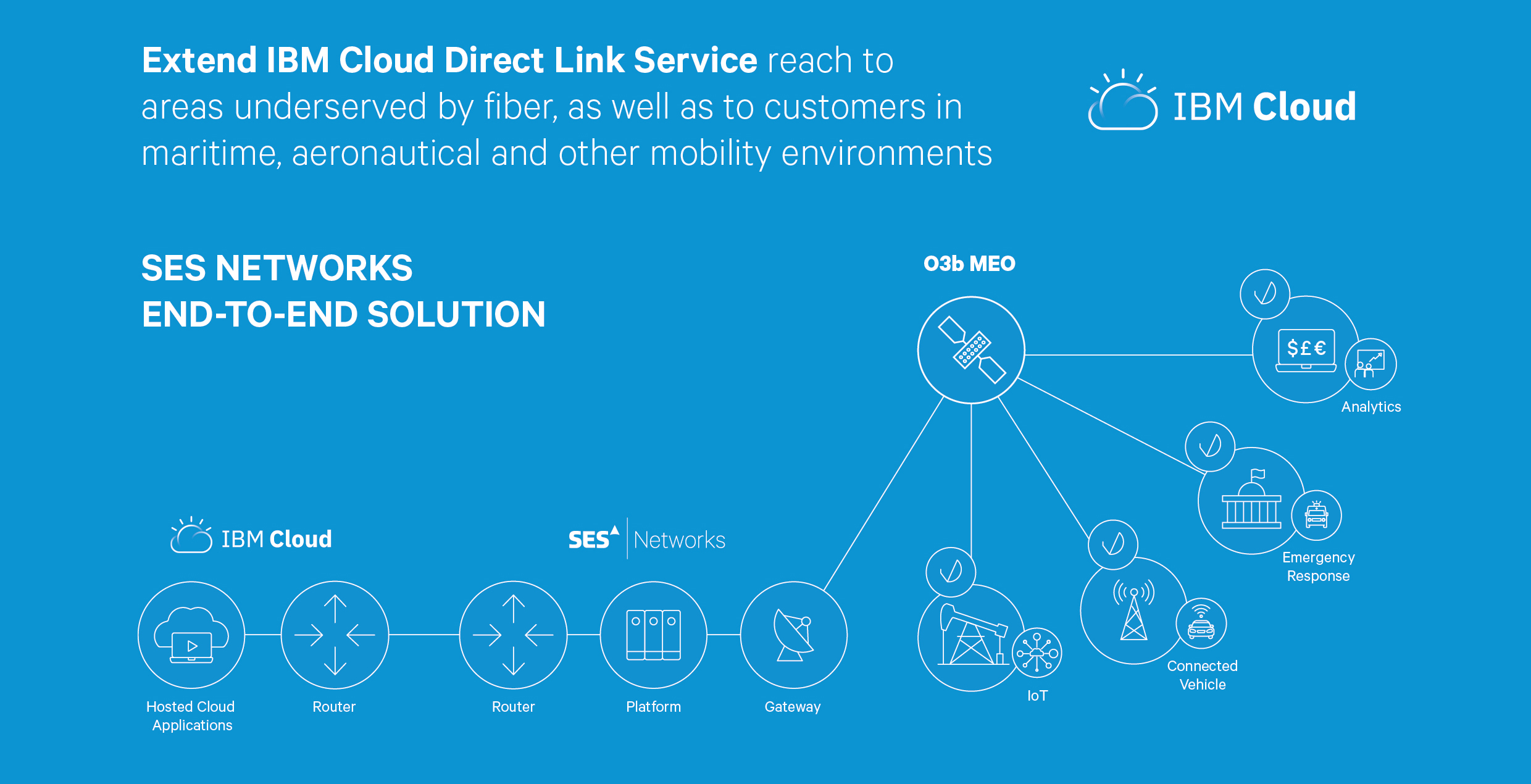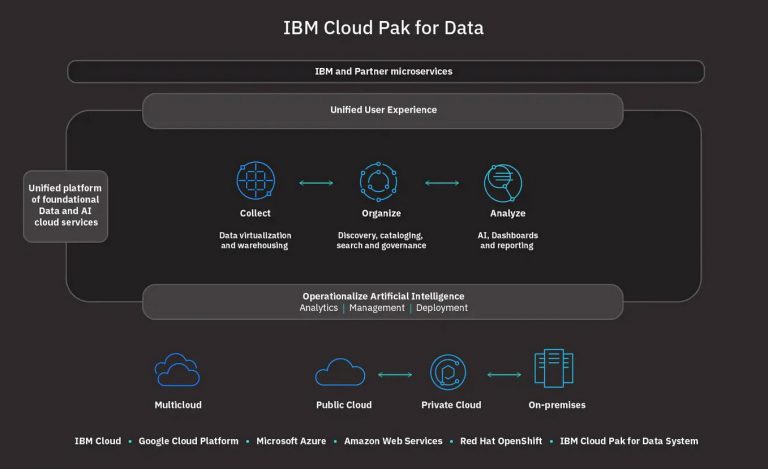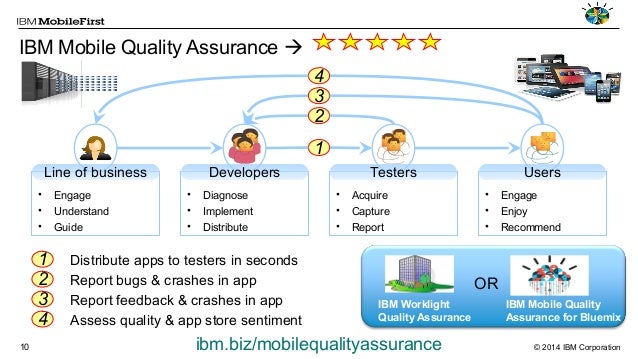An Overview of IBM Cloud Mobile Services
IBM Cloud Mobile Services is a comprehensive suite of tools and services designed to facilitate mobile app development, streamline processes, and enhance app performance. These cloud-based services cater specifically to mobile app development needs, offering numerous benefits over traditional on-premises solutions. By utilizing IBM Cloud Mobile Services, developers can build robust, scalable, and feature-rich mobile applications with ease.
Cloud-based services have gained significant traction in recent years, primarily due to their flexibility, cost-effectiveness, and ease of integration. IBM Cloud Mobile Services harnesses the power of the cloud to provide developers with a wide range of features and capabilities tailored to mobile app development. These services encompass various aspects of app development, from user authentication and data protection to analytics, testing, and performance monitoring.
The core IBM Cloud Mobile Services include IBM Mobile Foundation, IBM Mobile Analytics, IBM Mobile Authentication, and IBM Mobile Quality Assurance. Each of these services plays a crucial role in building, deploying, and maintaining top-notch mobile applications. By leveraging these services, developers can focus on creating innovative and engaging app features while IBM Cloud Mobile Services handle the underlying infrastructure and processes.
Key IBM Cloud Mobile Services for Building Top-notch Apps
IBM Cloud Mobile Services offers a wide array of tools and features designed to support various aspects of mobile app development. Among these services, IBM Mobile Foundation, IBM Mobile Analytics, IBM Mobile Authentication, and IBM Mobile Quality Assurance stand out as essential components for building high-quality mobile applications.
IBM Mobile Foundation
IBM Mobile Foundation is a comprehensive mobile application development platform that simplifies the process of building, deploying, and managing mobile apps. It offers features such as offline support, on-device data caching, and seamless integration with back-end systems. By utilizing IBM Mobile Foundation, developers can create robust and feature-rich mobile applications that deliver a superior user experience.
IBM Mobile Analytics
IBM Mobile Analytics is a powerful tool that enables developers to monitor app performance, user engagement, and other key metrics. With IBM Mobile Analytics, developers can collect, visualize, and analyze data to make data-driven decisions and optimize app performance. This service helps developers identify trends, pinpoint issues, and track user behavior, ensuring that their apps remain competitive and engaging.
IBM Mobile Authentication
IBM Mobile Authentication is a security service that ensures secure user authentication and data protection. It offers features such as multi-factor authentication, single sign-on, and biometric authentication, enabling developers to build applications that prioritize user security and privacy. By leveraging IBM Mobile Authentication, developers can create apps that inspire trust and confidence among users.
IBM Mobile Quality Assurance
IBM Mobile Quality Assurance is a testing and quality assurance platform that helps developers identify and fix issues before releasing their apps. It offers features such as functional testing, usability testing, and performance testing, enabling developers to create apps that deliver a seamless and enjoyable user experience. By utilizing IBM Mobile Quality Assurance, developers can ensure that their apps meet the highest standards of quality and functionality.
How to Get Started with IBM Cloud Mobile Services
Getting started with IBM Cloud Mobile Services is a straightforward process that can be completed in a few simple steps. To begin, follow these instructions:
-
Create an IBM Cloud account: Visit the IBM Cloud website and sign up for a new account. You will need to provide basic information, such as your name, email address, and a password. Once your account is created, you can log in and access the IBM Cloud dashboard.
-
Create a new mobile app: In the IBM Cloud dashboard, navigate to the “Mobile” section and click “Create a mobile app.” You will be prompted to provide a name for your app and select a platform (iOS, Android, or Cordova). After providing the necessary information, click “Create” to generate your app.
-
Integrate IBM Cloud Mobile Services: Once your app is created, you can begin integrating IBM Cloud Mobile Services. To do this, navigate to the “Services” section of the IBM Cloud dashboard and search for the desired service (e.g., IBM Mobile Foundation, IBM Mobile Analytics, IBM Mobile Authentication, or IBM Mobile Quality Assurance). Click “Create” to generate a new instance of the service and follow the on-screen instructions to integrate it into your app.
Throughout this process, you can refer to IBM Cloud’s comprehensive documentation and tutorials for guidance and support. Additionally, you can leverage code snippets and sample projects to help streamline the integration process.
Building a Secure Mobile App with IBM Cloud Mobile Services
Security is a top priority for mobile app developers, and IBM Cloud Mobile Services offers robust security features to ensure user authentication and data protection. Among these features, IBM Mobile Authentication stands out as a crucial component for building secure mobile apps.
IBM Mobile Authentication
IBM Mobile Authentication is a cloud-based service that enables developers to implement secure user authentication in their mobile apps. It supports various authentication methods, including social login, multi-factor authentication, and biometric authentication. By leveraging IBM Mobile Authentication, developers can create apps that prioritize user security and privacy, thereby fostering trust and confidence among users.
Additional Security Features
In addition to IBM Mobile Authentication, IBM Cloud Mobile Services offers several other security features designed to protect user data and maintain app integrity. These features include data encryption, API security, and access control. By implementing these security measures, developers can build apps that meet the highest standards of security and compliance.
Best Practices for Maintaining App Security
To ensure the ongoing security of their mobile apps, developers should follow best practices such as regularly updating app code, monitoring security alerts, and conducting security audits. Additionally, developers should educate users about security best practices, such as using strong passwords, enabling multi-factor authentication, and avoiding suspicious links or downloads.
Monitoring App Performance and User Engagement with IBM Cloud Mobile Analytics
Mobile app analytics play a crucial role in helping developers track app performance, user engagement, and other key metrics. IBM Cloud Mobile Analytics is a powerful tool that enables developers to collect, analyze, and visualize app data, empowering them to make data-driven decisions and optimize app performance. In this section, we will discuss how to use IBM Cloud Mobile Analytics to monitor app performance and user engagement.
Setting Up IBM Cloud Mobile Analytics
To get started with IBM Cloud Mobile Analytics, developers need to create an instance of the service and integrate it into their mobile app. This process involves adding a few lines of code to the app, which will enable data collection and transmission to the IBM Cloud Mobile Analytics dashboard. Once the service is integrated, developers can begin tracking app metrics and visualizing data in real-time.
Tracking App Metrics
IBM Cloud Mobile Analytics enables developers to track a wide range of app metrics, including user engagement, app crashes, and user behavior. By monitoring these metrics, developers can identify trends, pinpoint issues, and optimize app performance. For example, if a developer notices a high rate of app crashes, they can investigate the root cause and implement fixes to improve app stability. Similarly, if a developer notices that users are abandoning the app after a certain point, they can investigate the user experience and make improvements to increase user engagement.
Visualizing Data with IBM Cloud Mobile Analytics
IBM Cloud Mobile Analytics offers powerful data visualization tools that enable developers to create custom charts, graphs, and dashboards. These visualization tools make it easy to interpret app data and identify trends and patterns. For example, developers can create a chart that shows user engagement over time, or a graph that compares app crashes across different platforms. By visualizing app data, developers can gain a deeper understanding of app performance and user behavior, enabling them to make informed decisions and optimize app performance.
Optimizing App Quality with IBM Mobile Quality Assurance
Quality is a critical factor in mobile app development, and ensuring that an app functions correctly, is user-friendly, and performs well is essential for success. IBM Mobile Quality Assurance is a powerful tool that enables developers to test app functionality, usability, and performance, helping them identify and fix issues before releasing the app. In this section, we will discuss how to use IBM Mobile Quality Assurance to optimize app quality.
Testing App Functionality
IBM Mobile Quality Assurance enables developers to test app functionality across multiple platforms, devices, and operating systems. By automating the testing process, developers can save time and ensure that their app functions correctly in various scenarios. For example, developers can test how their app behaves when the device is rotated, how it handles network connectivity changes, and how it responds to user input. By testing app functionality, developers can identify and fix issues before releasing the app, ensuring a smooth user experience.
Testing App Usability
Usability is a critical factor in mobile app development, and ensuring that an app is easy to use, intuitive, and user-friendly is essential for success. IBM Mobile Quality Assurance enables developers to test app usability by simulating user interactions and analyzing user behavior. By monitoring user interactions, developers can identify usability issues, such as confusing navigation, unclear instructions, or slow response times. By testing app usability, developers can optimize the user experience, making their app more appealing to users.
Testing App Performance
Performance is a critical factor in mobile app development, and ensuring that an app performs well, loads quickly, and responds promptly is essential for success. IBM Mobile Quality Assurance enables developers to test app performance by simulating various scenarios, such as low battery, high network latency, or limited memory. By monitoring app performance, developers can identify and fix performance issues, such as slow load times, memory leaks, or battery drain. By testing app performance, developers can ensure that their app performs well in various scenarios, providing a smooth user experience.
Real-life Examples: Successful Apps Built with IBM Cloud Mobile Services
IBM Cloud Mobile Services has been used by numerous successful mobile apps, spanning various industries and use cases. In this section, we will showcase some of these apps, discussing their features, user base, and the specific IBM Cloud Mobile Services they employed.
App 1: MyFitnessPal
MyFitnessPal is a popular fitness and nutrition app with over 200 million registered users. The app utilizes IBM Cloud Mobile Services for user authentication, data protection, and analytics. By leveraging IBM Cloud Mobile Services, MyFitnessPal has been able to ensure secure user authentication, protect sensitive user data, and track user engagement and behavior. This has enabled the app to provide a more personalized and engaging user experience, contributing to its success.
App 2: The Weather Channel
The Weather Channel is a leading weather app with over 100 million monthly active users. The app utilizes IBM Cloud Mobile Services for analytics, data protection, and performance testing. By leveraging IBM Cloud Mobile Services, The Weather Channel has been able to track user engagement and behavior, protect sensitive user data, and ensure that the app performs well in various scenarios. This has enabled the app to provide a more accurate and reliable user experience, contributing to its success.
App 3: Hilton Honors
Hilton Honors is a popular hotel booking app with over 70 million members. The app utilizes IBM Cloud Mobile Services for user authentication, data protection, and performance testing. By leveraging IBM Cloud Mobile Services, Hilton Honors has been able to ensure secure user authentication, protect sensitive user data, and ensure that the app performs well in various scenarios. This has enabled the app to provide a more seamless and convenient user experience, contributing to its success.
Future Trends and Opportunities with IBM Cloud Mobile Services
Mobile app development is a rapidly evolving industry, with new trends and technologies emerging all the time. IBM Cloud Mobile Services is well-positioned to help developers stay ahead of the curve, providing a range of tools and capabilities that can help developers build innovative and cutting-edge mobile apps. In this section, we will discuss some of the emerging trends in mobile app development and how IBM Cloud Mobile Services can help developers take advantage of these trends.
Trend 1: Artificial Intelligence and Machine Learning
Artificial intelligence (AI) and machine learning (ML) are becoming increasingly important in mobile app development, enabling developers to build apps that can learn from user behavior, make predictions, and provide personalized user experiences. IBM Cloud Mobile Services provides a range of AI and ML tools and capabilities, including IBM Watson, that can help developers build smarter and more intelligent mobile apps.
Trend 2: Internet of Things (IoT) Integration
The Internet of Things (IoT) is transforming the way we live and work, and mobile apps are becoming increasingly important in IoT integration. IBM Cloud Mobile Services provides a range of tools and capabilities that can help developers build mobile apps that can connect to and interact with IoT devices, enabling new and innovative use cases.
Trend 3: Augmented Reality (AR) and Virtual Reality (VR)
Augmented reality (AR) and virtual reality (VR) are becoming increasingly popular in mobile app development, enabling developers to build immersive and engaging user experiences. IBM Cloud Mobile Services provides a range of AR and VR tools and capabilities, including IBM Cloud AR & VR, that can help developers build cutting-edge mobile apps.
Trend 4: Progressive Web Apps (PWAs)
Progressive web apps (PWAs) are becoming an increasingly popular alternative to native mobile apps, enabling developers to build web apps that can provide a native app-like experience. IBM Cloud Mobile Services provides a range of tools and capabilities that can help developers build PWAs that can compete with native mobile apps in terms of functionality and user experience.








